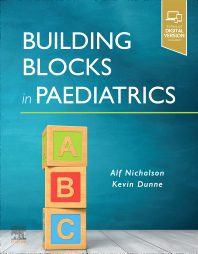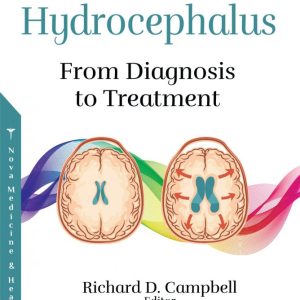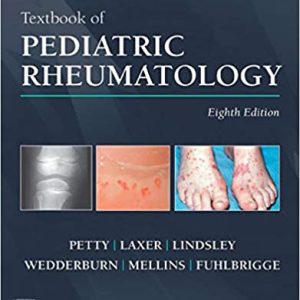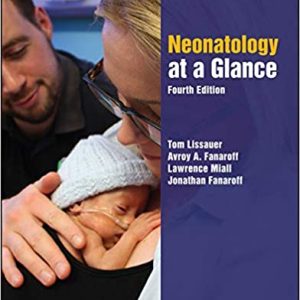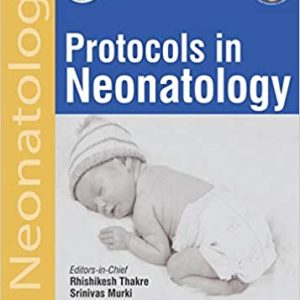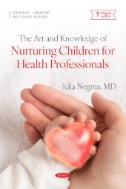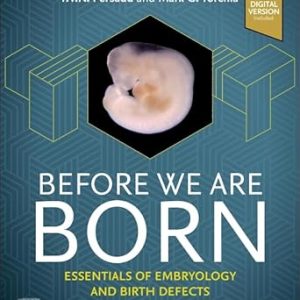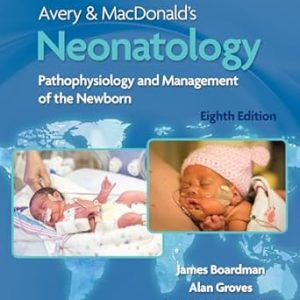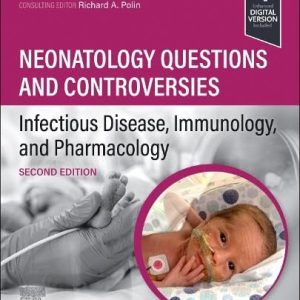Building Blocks in Paediatrics 1st Edition
Building Blocks in Paediatrics ORIGINAL PDF by Alfred Nicholson, Kevin Dunne
- Language: English
- Publisher: Elsevier 2022
- Published: November 1, 2022
- ISBN: 9780323834216
$9.99
Description
Based on the current paediatric training curriculum, this book includes the core basics (section 1), the various symptom-based presentations (section 2) all with input from renowned sub-specialists in Paediatrics, the common presentations relating to age that are seen in primary care (section 3) and the skills you need to have to be a successful trainee or consultant in Paediatrics (section 4). All of the chapters have high quality clinical and radiology images as appropriate and have additional typical case scenarios to highlight the learning points. This book is unique in that it caters for undergraduate students through to postgraduate trainees in paediatrics or general practice, and the working GP or consultant.
Cover image
Title page
Table of Contents
Copyright
Foreword
Preface
Contributors
Dedication
Section 1. The Core Essentials
1. The Big Picture in Child Health
Research in Paediatrics
Immunisation
Screening for Hearing Loss
2. Taking a History
Introduction
Presenting Symptoms
History of Presenting Complaint
The Adolescent History
HEEADSSS Screening Tool
Home and Relationships
3. The Paediatric Examination
A Different Approach
The Power of Observation
The Cardiovascular Examination
Auscultation
The Respiratory Examination
The Three Key Questions in the Respiratory Examination
Abdominal Examination
Auscultation
4. The Newborn and the Six-Week Examination
Newborn Examination
Clinical Examination
Examination of the Face
Examination of the Nose
Examination of the Eyes
Examination of the Mouth
Examination of the Ears
Examination of the Neck
Examination of the Cardiovascular System
Examination of the Respiratory System
Examination of the Abdomen
Examination of the Genitalia
Examination of the Spine
Examination of the Upper Limbs
Examination of the Lower Limbs
Examination of the Hips
Examination of the Central Nervous System
Examination of Central Tone
Examination of Peripheral Tone
Examination for Normal Newborn Reflexes
Baseline Measurements
The Six-Week Check
5. Feeding Issues and Faltering Growth
Breast-Feeding Issues
Nipple and Breast Pain
Low Milk Supply
Successful Breast-Feeding
Vomiting in Early Infancy
Faltering Growth
Food Refusal
6. Growth and Puberty
Normal Growth
Measuring Children
Familial Factors
Normal Pubertal Development
Ambiguous Genitalia
Delayed Puberty
Evaluating a Child With Short Stature
Small for Gestational Age
Glucocorticoid Excess
GH Therapy
7. Understanding Childhood and Adolescent Obesity
International Epidemic of Childhood Obesity
Prevention of Obesity in Childhood
Definition of Childhood Obesity
Consequences of Childhood Obesity
Causes of Childhood Obesity
Investigations
Management
Bariatric surgery for obesity in adolescence
Medical Complications of Obesity
Section 2. A Symptom-Based Approach
8. Common Problems in Newborns
Term Infants
Examination
Management
Newborns With Breathing Difficulties
Neurological Problems
Jitteriness
Benign Neonatal Sleep Myoclonus
Erb’s Palsy
Klumpke’s Palsy
Facial Nerve Palsy
Vitamin K Deficiency Bleeding (VKDB) of the Newborn
Congenital Cytomegalovirus (CMV) Infection
Care of the Preterm Infant
Periventricular Leukomalacia (PVL)
Bronchopulmonary Dysplasia
Retinopathy of Prematurity
9. Evaluating the Dysmorphic Child
Inheritance Patterns
Components of a Dysmorphic Evaluation
Summary of Management Guidelines
Dysmorphic Features and Recognition of Selected Other Syndromes
10. Anaemia – The Pale Child
History
Iron Deficiency Anaemia
Beta Thalassaemia
G6PD
Sickle Cell Anaemia (SS Disease)
Acute Leukaemia
11. Congenital Heart Disease
Antenatal Screening for Congenital Heart Disease
Coarctation of the Aorta
Cyanotic Congenital Heart Disease
Tetralogy of Fallot
Management of Hypercyanotic Spells
Tricuspid Atresia
Chest Pains in Childhood
Syncope in Childhood
12. The Child With a Cough
Clues From the History
Clues from the Examination
Specific Clinical Pointers to a Diagnosis
Asthma
Chronic Respiratory Conditions
13. The Child With Diarrhoea
Acute Gastroenteritis
Chronic Non-Specific Diarrhoea (or Toddler Diarrhoea)
Lactose Intolerance
Coeliac Disease
Giardiasis
14. Diabetes Mellitus in Childhood and Adolescence
Clinical Features
Management
Education in Newly Diagnosed Diabetics (Table 14.1)
Pre- and Post-Operative Care of the Diabetic Child
General Resuscitation
Fluid Management
Potassium
Insulin therapy
Oral fluids
Complications of DKA: Cerebral Oedema
Idiopathic Cerebral Oedema (Table 14.2)
Long-Term Management of Type 1 DM
Type 2 Diabetes
Maturity-Onset Diabetes in the Young (MODY)
Cystic Fibrosis Related Diabetes (CFRD)
Neonatal Diabetes
15. The Child with a Fever
Fever in Children Under 2 Years Old
Measurement of Temperature in Infants and Children
Recognition of Sepsis
Sepsis 6 Algorithm
Common Causes of Fever in Infants and Children
16. Food Allergies in Children
The Allergy Focused History
What Symptoms Are There and Does the Food Cause Symptoms on Every Occasion?
Diagnostic Tests
Cow’s Milk Allergy (CMA)
Prognosis of CMA and CMPI
Egg Allergy
Peanut Allergy
Soya Milk Allergy
Fish and Shellfish Allergy
Anaphylaxis
17. The Child With Frequent Infections
The Immune Response
The Genetic Basis of Inborn Errors of Immunity
Maturation of the Immune System
Secondary Immunodeficiency
Key Points in the History
Other Medical History
Full Blood Count (FBC)
Lymphocyte Subset Analysis
Serum Immunoglobulins
Vaccine-Specific Antibody Titres
Complement Levels and Function (CH50/AH50 Tests)
HIV Disease in Infants and Children
Diagnosis
18. The Child With Headaches
Physical Examination
Cranial Nerve Examination
Neuroimaging
Tension headaches
Migraine
Cluster Headaches
Identifying Brain Tumours
Idiopathic Intracranial Hypertension (IIH)
19. Inborn Errors of Metabolism
Neonatal Presentations
Presentations Beyond the Neonatal Period
20. Joint Pains in Childhood
Non-Inflammatory or Inflammatory Joint Pain
History and Examination
Laboratory and Radiology Studies
Joint Hypermobility Syndrome
Evaluating Acute Limp in Childhood
Common Variants in the Legs Causing Parental Concern
21. Problems Relating to the Kidneys
Urinary Tract Infections
Obtaining a Urine Sample
Hypertension in Childhood
Proteinuria
Haematuria
22. Neurodisability
Cerebral Palsy
Diagnosis of Cerebral Palsy
Physical Examination
Gait assessment
Classification of cerebral palsy
Managing CP
Assessment of the Floppy Infant
Spinal Cord Issues
Transverse myelitis
Neuropathies
Myopathies
Roles of Multidisciplinary Team (MDT) Members in the Provision of Services to Children With Neurodisability
23. The Child with a Rash
Common Skin Disorders in Paediatric Skin of Colour
Managing More Severe Atopic Dermatitis
24. Safeguarding Infants and Children
Physical abuse
Emotional abuse
Neglect
Online Abuse
Reporting Child Abuse
Consequences of Child Maltreatment
Risk Factors
Prevention of maltreatment
Recognising Child Abuse
Acting Upon Child Maltreatment Concerns
Abusive Head Trauma (AHT)
25. The Child With a Seizure
Background
Diagnostic Approach to Assessing a Child With Seizures
Seizure and Epilepsy Classification
Indications for Investigations
Confirm Epilepsy Diagnosis and Define Epilepsy Type
Anticonvulsants Used in Status Epilepticus:
Basic Principles of Antiepileptic Drugs (AEDs)
Non-Epileptic Events That Mimic Epileptic Seizures
26. Severe Illness in Infancy and Childhood
Rapid Assessment Using the ABCDE Approach
Upper Airway Obstruction
Acute Severe Asthma
The Unconscious Child
Stabilisation
Rapid Clinical Assessment
Pupillary responses
Finding the Cause
Sepsis with shock
Hyperammonaemia
Meningitis or encephalitis
Electrolyte disturbance
Intoxication/poisoning
Trauma
Hypertension with encephalopathy
Intracerebral bleed
Malfunction of a Ventriculoperitoneal Shunt
Investigations at Presentation
Timing of Lumbar Puncture (LP)
The Seriously Injured Child
27. Surgical Problems in Infancy and Childhood
Thoracic
Abdomen
Meckel’s diverticulum
Inguinal Region and Scrotum
Urology
Neoplasms
Section 3. Paediatrics in Everyday Practice
28. Common Presentations in Infancy
Normal Crying Pattern
Infant Colic
History
Differential Diagnoses
Infant With a Large Head
29. Frequent Flyers in the Toddler Years
Sleep Disorders in Infants and Children
30. Issues in School-Going Children
Attention Deficit Hyperactivity Disorder (ADHD)
Inattention Features
Hyperactivity and Impulsivity
Treatment of ADHD
Developmental Coordination Disorder (DCD)
Diagnostic Criteria for DCD
Tics
Obstructive Sleep Apnoea (OSA)
Symptoms
Assessment
Screening for OSA in High-Risk Groups
Nocturnal Enuresis
Physiological Development of Continence
Causes of Primary Nocturnal Enuresis
Reduced Bladder Capacity
Inability to Wake During Sleep in Response to Need to Void
Genetics
Nocturnal Polyuria
Psychological Issues
Investigations
Management
Preliminary Approach
Oral Intake
Voiding
Non-Pharmacological
Lifting
Enuresis Alarms
Pharmacological Management
Dysfunctional Voiding With Daytime Enuresis
Head Lice in Children
Symptoms
Diagnosis
Treatment
Wet Combing or Bug-Busting
31. Adolescent Health
Adolescence
Why Adolescent Health Is Important
What Makes Adolescents Unique?
Eating Disorders
Adolescent Mental Health
Chronic Fatigue Syndrome (CFS)
Transition to Adult Services
Section 4. The Skills Required to Be a Successful Paediatrician
32. Clinical Reasoning and the Clinical Consultation
How to Run a Clinic
Becoming a Good Diagnostician
Dealing With Uncertainty
A Method of Consultation to Reduce Error
Information Overload
Wellness and Health in Doctors
Developing resilience
33. Learning From Clinical Events
A New Landscape
Safe Practice
Responding to Errors
Safe HealthCare in Hospitals
Diagnoses Easily Missed in Paediatrics
The Newborn Examination
The 6-Week Check
Infancy
Toddlers
School-Going Children
Adolescence
34. Illness Without Disease
Somatisation
Functional Abdominal Pain (FAP)
Treatment Approach
Other Symptoms Due to Somatisation
35. Professionalism, Advocacy and Ethics in Child Health
Professionalism
Key Ethical Principles in Child Health
36. Interpretation of Laboratory Results
37. ECG Interpretation
ECG Interpretation and Cardiac Arrythmias
Step One: Determine the Rate and Rhythm
Step Two: Evaluate the PR, QRS and QT Intervals
Step Three: Evaluate the QRS and P Wave Axis
Step Four: Evaluate for Right and Left Ventricular Hypertrophy
38. Critical Appraisal of the Literature
Keeping Up To Date With the Medical Literature
Critical Appraisal
Location and Selection of Studies
Study Design
Randomised Controlled Trials
Systematic Reviews
39. Practical Procedures in Neonatology and Paediatrics
Introduction
Preparation Prior to the Procedure: General Principles
Umbilical Catheterisation in Newborns
Inserting an Umbilical Arterial Catheter
Inserting an Umbilical Venous Catheter
Peripherally Inserted Central Catheter
Intravenous Cannulation
Capillary Samples
Intraosseous Access
Radial Artery Cannulation
Endotracheal Intubation
Chest Drain Placement
Lumbar Puncture
Good Preparation
Good Nursing Assistance
Good Technique
CSF Interpretation
Interpretation of a Bloody Tap
Insertion of a Nasogastric (NG) Tube
Index
Additional information
| Publisher |
|---|
Showing 1–12 of 273 results
-
![Atlas of Pediatric Laparoscopy and Thoracoscopy Second Edition [2nd ed/2e With Videos]](https://medicalebooks.org/wp-content/uploads/2022/07/Atlas-of-Pediatric-Laparoscopy-and-Thoracoscopy-2nd-Edition-300x300.jpg)
Atlas of Pediatric Laparoscopy and Thoracoscopy Second Edition [2nd ed/2e With Videos]
$26.99 Add to cart -
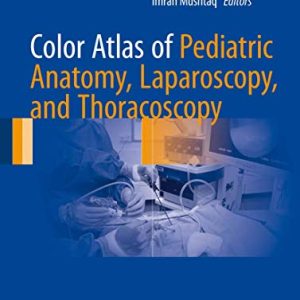
Color Atlas of Pediatric Anatomy, Laparoscopy, and Thoracoscopy, 1st Edition.
$8.99 Add to cart -
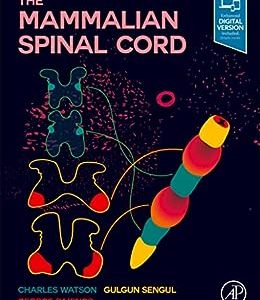
Hematological Profile of Cord Blood in Infants First Edition
$8.99 Add to cart -
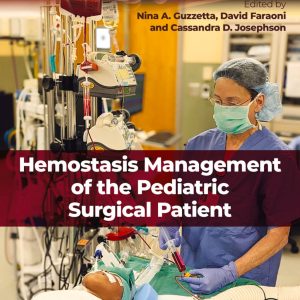
Hemostasis Management of the Pediatric Surgical Patient 1st Edition
$8.99 Add to cart -
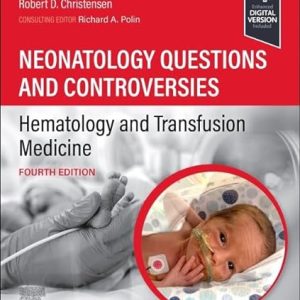
Neonatology Questions and Controversies Hematology and Transfusion Medicine (Neonatology Questions & Controversies) 4th Edition
$12.99 Add to cart -
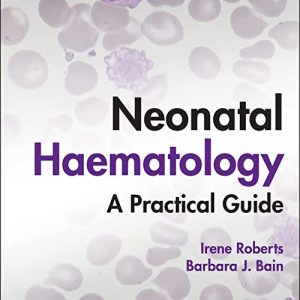
Neonatal Haematology A Practical Guide
$8.99 Add to cart -

Neonatal Hematology Pathogenesis, Diagnosis, and Management of Hematologic Problems Third Edition (3rd ed/3e)
$11.99 Add to cart -

Oxford Paediatric Haematology and Oncology Second Edition
$13.99 Add to cart

